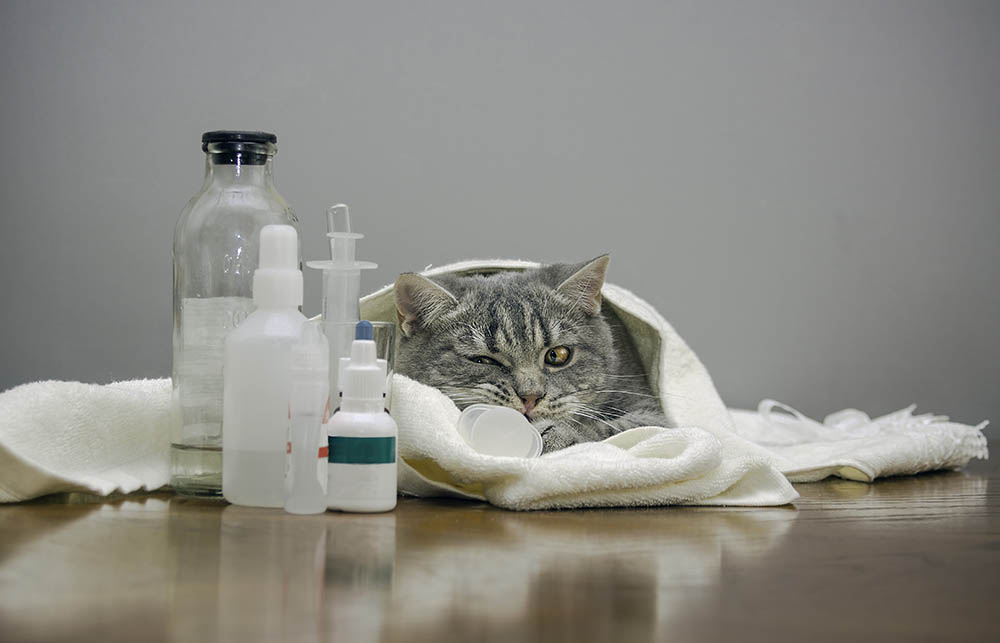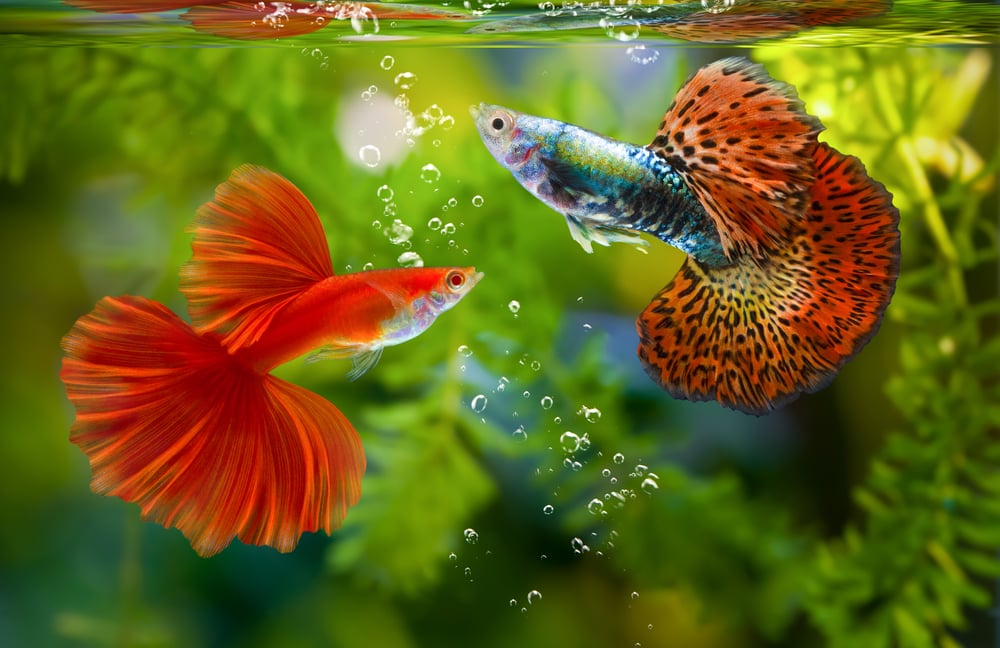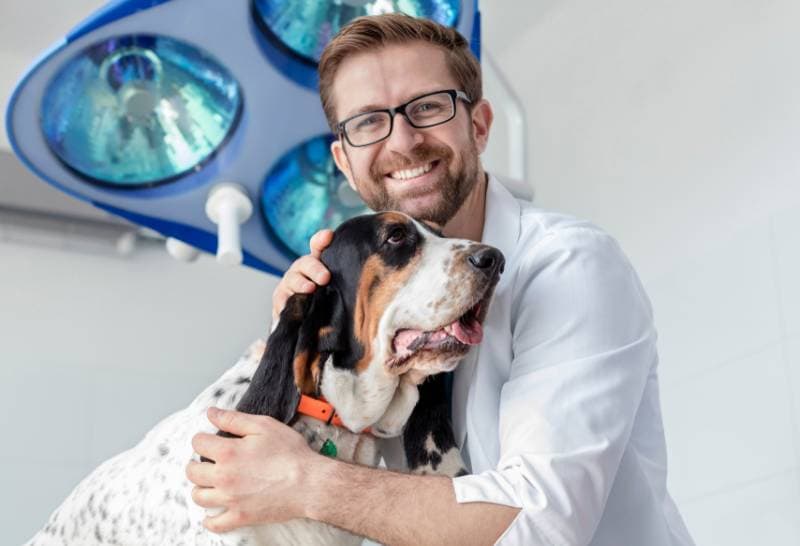4 Common Munchkin Cat Health Problems (Vet Answer)
By Dr. Kim Podlecki, DVM (Vet)
Updated on
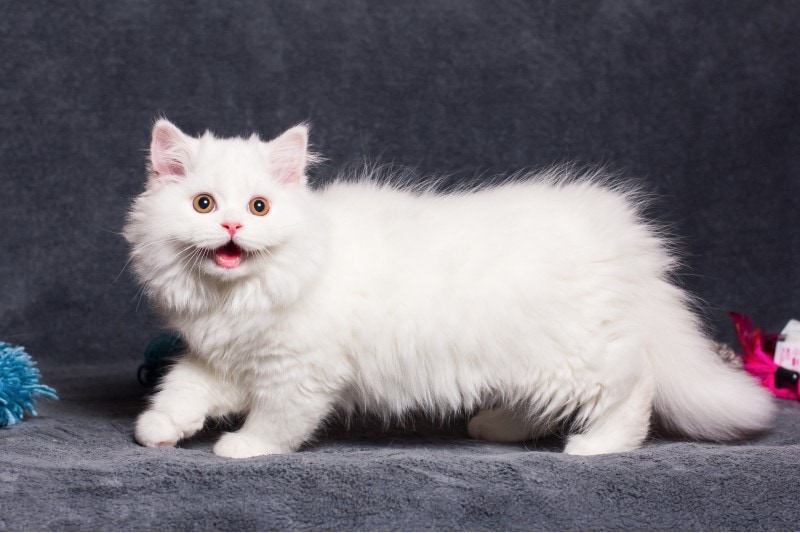
You may or may not have ever heard of a Munchkin cat. The name comes from the cats’ shortened limbs, making them much smaller and shorter in stature than other cat breeds. While Munchkin cats can be adorable and sweet, they are not without their health problems. Let’s learn more about the common health problems that Munchkin cats can face in this article.
What Is a Munchkin Cat?
A Munchkin cat is a cat that has a dominant genetic mutation that causes all four of their limbs to be extremely short. In other words, only one copy of this gene needs to be passed on for the cat to have the genetic deformity of shortened limbs. The Munchkin cat is similar to dog breeds such as the Dachshund, Basset Hound, and Corgi that are all born with shortened, deformed limbs.
There has been debate in the scientific community if there are other genetic, congenital, and/or inherited abnormalities that the Munchkin cat can get in addition to the shortened limbs. Unfortunately, studies are few and inconclusive as to exact health problems of the Munchkin cat.
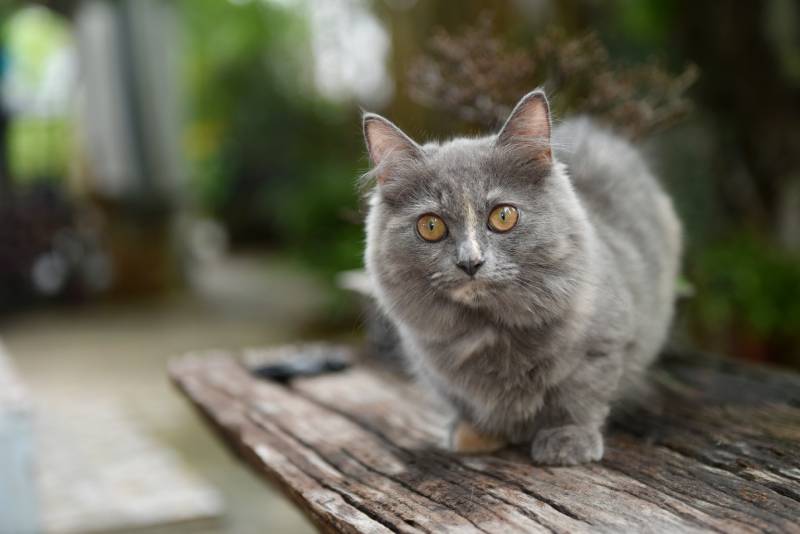
The 4 Common Health Problems in Munchkin Cats
1. Limb Deformity & Arthritis
Munchkins get their name from their shortened limbs. But this doesn’t come without a price. The legs of the Munchkin cat don’t grow normally due to a genetic mutation. Early in life, you may notice little to no problems with your Munchkin cat. They can have great mobility, and can run, jump, and climb with the best of them. However, due to the limb deformities, Munchkin cats will very likely develop arthritis as they age. Arthritis in cats, as in people, can be very painful and eventually debilitating. Because of the leg deformities, a Munchkin cat may develop arthritis at a much younger age than other cats.
2. Juvenile or Fetal Death
If two Munchkin cats are bred together, this will increase the chances of any genetic mutations being passed down to their kittens. Even if a Munchkin is bred to a normal cat, the genetic mutation for the shortened limbs may be passed along. If a kitten receives only one copy of the mutated gene (one normal parent, one Munchkin parent), then they will be born a Munchkin themselves. If an embryo receives two copies of the gene (both parents are Munchkins), then it will not develop in the womb and dies prior to being born. For this reason, it’s never recommended to purposely breed Munchkin cats, either to another Munchkin or a regular cat. A Munchkin can should always be spayed or neutered by your veterinarian at an appropriate age.
3. Lordosis
There have been some reports of lordosis in Munchkin cats, as well as other breeds. Lordosis is an excess curvature of the spine, typically in the lumbar, or lower back, region. In other words, the area of the spine nearer the tail is curved. This is caused by a genetic malformation of the vertebrae in the affected area. Affected cats born with lordosis can cause weakness and even paralysis of the hind legs. While some studies report a higher incidence of this condition in Munchkin cats, it’s not known if there really is an increased incidence of this mutation in Munchkin cats as compared to other breeds. This is because lordosis is not common in the first place, and the purposeful breeding of Munchkin cats is outlawed in many places.
4. Pectus Excavatum
Pectus excavatum is another congenital malformation seen in Munchkin cats, in addition to other animals. The ribs and sternum (breastbone) do not develop normally, and the cat ends up having an inward, concave appearance of their chest. Similar to lordosis, there are some reports that claim this occurs more frequently in Munchkins, but it has not been proven. The severity of abnormal signs seen with pectus excavatum varies. Unfortunately, pectus excavatum in cats is frequently not compatible with life as it results in an abnormal chest cavity and difficulty breathing. Cats born with this malformation are at higher risk of early death.
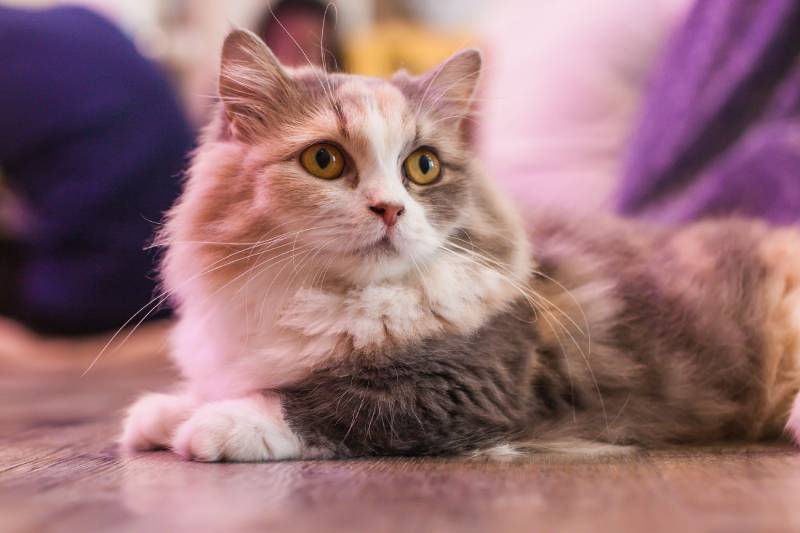
Conclusion
Munchkin cats get their names from their extremely shortened legs. The affected cats have a genetic mutation that has been passed down from one of their parents. These cats may be more prone to developing arthritis in their shortened limbs, and in some cases at an earlier age than their normal counterparts. If two Munchkins breed, their offspring will not be viable and will die in vitro. There are some reports that Munchkins may have a higher incidence of spinal and bone deformities such as lordosis and pectus excavatum. However, these reports have been unsubstantiated in this breed, as they are uncommon in general. Munchkins should never be bred together, but even breeding a Munchkin to a normal cat may increase the incidence of other genetic mutations, so it is never recommended.
Featured Image Credit: Sviatoslav_Shevchenko, Shutterstock

